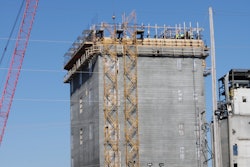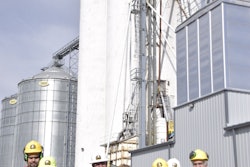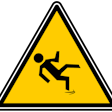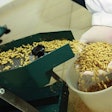
In 2017, the Grain Elevator and Processing Society and Kansas State University’s distance education program reached 5,000 participants in 36 different countries. The distance education program is part of the GEAPS overall continuing education curriculum which includes hands-on trainings, webinars, conference education sessions, chapter meetings and leadership workshops.
Beginning as a partnership with Purdue University under the leadership of Dr. Dirk Maier in 2005, the program provides well-regarded, web-based grain handling and processing operations training courses for industry professionals through Kansas State University’s International Grains Program. Courses are taught by both industry and academic experts.
GEAPS is an international professional association for the grain handling and processing industry that promotes leadership, excellence and innovation. While exemplifying this mission, the distance education program helps provide industry professionals with the specific knowledge and credentials they need to be competitive.
The GEAPS distance education program has grown exponentially since 2005. The program offered three separate courses in 2007; in 2018 a total of 26 individual courses are available. Course delivery methods have changed, professional credentials have been added, and both GEAPS and Kansas State University have staff to support the program.
There are many factors that contribute to the program’s success and one worth noting is the popularity of distance education. Distance education became popular around the same time the program was in its beginning stages. It was developed further and proved to be an effective education resource. One of the reasons the program is so popular in the grain industry is because many elevators and other facilities are based in remote areas, where other training options may not be available.
Online learning is popular because of its convenience and the flexibility that it provides. It brings continuing education right to employees at grain elevators and other facilities. There is no need to travel for distance education courses, take time off or schedule replacements for absences.
Today the program is more than a distance education program. The program includes modernized course content and delivery and connects participants with other grain industry professionals.
“Even though the industry has been around for a while, there are new improvements, new things that are going on,” said Chris Blair, regional manager at NEW Cooperative, Continuing Education Program Oversight Committee Chair, Greater Iowa Chapter. “I like being able to educate others about new improvements in the industry. GEAPS tries to evolve when everything else evolves. We try to incorporate into the courses what we’ve done in the past, do now and will do in the future.”
Prioritizing innovation
Innovation is a priority of the program and its oversight committee. The Continuing Education Program Oversight Committee makes sure the most up-to-date methods of distance education and best practices of the industry are incorporated. CEPOC is always looking to incorporate the next big thing in the grain industry—an application method or trend—into the distance education program.
“From our peer review process, we are finding, for example, that a lot of people don’t need a whole class on maintenance; participants want to quickly look up gearbox maintenance,” said Andrew Knapp, senior program manager at APTIM, Continuing Education Program Oversight Committee vice chair, Hoosier Chapter.
Course content and delivery
CEPOC is responsible for determining the program’s course subjects and what content should be taught. The committee brings in subject matter experts to contribute to the materials presented and conducts peer-reviews of each course, evaluating course relevancy while Kansas State University oversees course development and delivery.
“Content development is industry driven. So, if there’s a topic that the industry really needs to have, then they make that decision. K-State’s role is advising the best way to deliver and develop the education,” said Brandi Miller, associate director of the IGP Institute at Kansas State University in Manhattan, KS. “That is where our strengths are. We don’t have the same industry knowledge. We are not as close to the everyday challenges people are facing, but we are close to the best ways of delivering information and materials to adults.”
Together with Kansas State University, GEAPS makes sure that program participants are educated on what is important to the grain industry in the most effective and efficient way.
“The industry standard is what we are certainly striving for, we want to make sure that whatever we offer is the best practice in the field, and we intentionally review on a regular basis as best we can, and that makes our content fresh,” said Blair.
Development and networking
The program also presents participants with professional development opportunities. A major part of the course curriculum is that “Industry leaders come in for some lectures. These industry leaders are well known and respected in their fields. So, this [the GEAPS distance education program] could be looked at as a networking opportunity too, not just distance education,” said Blair. “Participants not only learn more about the industry and key components of professional development from their courses, but they are also exposed to others in the industry and have opportunities to form connections with them.”
Course schedule
The program’s courses are meant for any grain industry employee looking to expand their industry experience. Courses range from introductory to specialized topics for completion of credentials. So, whether an entry-level employee wants to become knowledgeable or a seasoned employee wants to receive a credential, the program provides the knowledge they need.
Courses currently take place over five weeks and contain 10 to 12 lectures which participants can complete at any time during the fiveweek period. Course size usually ranges from 20 to 40 participants. Since professional credentials were added to the program, 96 participants have earned the Credential in Grain Operations Management, 64 have earned Specialist Credentials and 15 have earned the Master Credential for completing all curriculum tracks.
The GEAPS distance education program will offer 32 courses in 2018, including a new course in March, GEAPS 546: Fighting Grain Silo Fires and Smolders. Registration generally opens a month before courses begin. To register for courses or for more information, visit https://www.geaps.com/education/distance-education/ or contact GEAPS at (763) 999-4300.


















